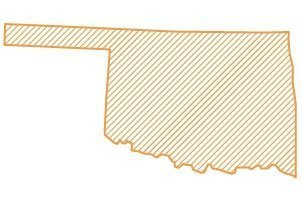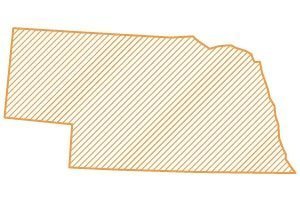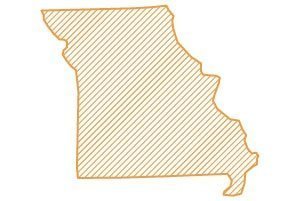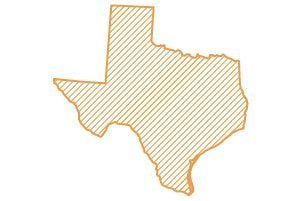Kansas has several programs available for those looking to further their education in library science. Emporia State University, in Emporia, Kansas, offers an ALA-accredited Master of Library Science (MLIS) program as well as other information study opportunities. There are also other related library science programs available in the state for those looking to become a media specialist in a school library or a school librarian.
Library and information science-related higher education in Kansas is a great option for many people. This guide will be an in-depth look at Kansas’s library science programs, library jobs in the state, and the average salaries Kansas librarians earn.
Library Science Degrees and MLIS Programs in Kansas
Individuals looking to obtain a degree in library science in Kansas have a couple of options. Kansas has two Library Science Master’s programs, one is accredited by the American Library Association. The American Library Association is the national professional organization for librarians. For a program to be accredited by the ALA, it must meet detailed standards criteria and be reviewed by an external ALA Accreditation Committee. Future librarians interested in a library career in the K-12 school systems, have two program options in Kansas.
Online Library Science Programs in Kansas
Online degree programs are a great way for busy people to advance their education. Programs are flexible, provide asynchronous coursework, and allow students to attend schools outside commutable distances. Many Library Science programs have an online format and provide rigorous curriculum and high post-graduate hiring rates.
Master’s Degrees in Library and Information Science in Kansas
Future Librarians may consider obtaining a Master’s Degree in Library and Information Science (MLIS) instead of Library Science (MLS). Many programs in Kansas and other states offer an MLIS degree. The MLIS is a broader degree in Information Science. These programs include coursework in data science, AI, user experience design, computer/human interaction, and many other aspects of information organization, searching, storage, and retrieval. A more traditional MLS degree focuses more specifically on libraries.
ALA-Accredited Master’s Programs in Library and Information Science (MLIS) in Kansas
There is only one ALA-accredited program in the state of Kansas: Emporia State University. Established as the Kansas State Normal School in 1863, the state public school is the third-oldest in Kansas and located in Emporia.
Master of Library Science at Emporia State University
The Master of Library Science program at Emporia State University is an excellent choice for those who are looking to work with the public at libraries. Students will learn how to catalog materials, conduct research, perform reference interviews, and do other daily library tasks. Participants must complete a mix of 22 hours of required courses and 14 hours of elective courses, which can include nine hours of concentration.
- Six Concentrations: Health Information Professionals, Leadership & Administration, Outreach and Community Engagement, Archives Studies, Informatics, and Youth Services
- Online or In-Person Option
- 36-hour program
- ALA-Accredited
How to Apply
To apply to the School of Library and Information Management’s master program at Emporia State University, prospective students must complete the Graduate School Application. You must include official transcripts from any other colleges or universities you’ve attended, two reference letters, a resume, a statement of objective that discusses what you want to do with the degree, and a copy of your ID. You must also complete an advising interview, but GRE scores are no longer required.
Other Master’s Degree Programs in Library and Information Science in Kansas
When becoming a school media librarian, there are multiple tracks you can take. Some people choose to earn an MLIS and school media specialist licensure at the same time, while others earn a master’s degree in education with a specialization in library media.
Master of Science in Education, Library Media Specialist at Fort Hays State University
Students who choose to become a school library media specialist without an MLIS can enroll in Fort Hays State University’s Master of Science in Education program. This program, which requires a total of 36 credit hours, enables students to qualify for school library positions.
- 36 credit hours required
- Non-ALA-accredited
- Only for school library media specialist jobs
- Online
ALA-Accredited Ph.D. Programs in Library and Information Science (MLIS) in Kansas
In addition to master’s level programs, there is also a Ph.D. program in library and information science in Kansas.
Ph.D. in Library and Information Management at Emporia State University
At Emporia State University, the School of Library and Information Management works with the Office of Graduate Studies and Research to make available a Ph.D. in Library and Information Management. This advanced degree was created to help those wanting to study, teach, and research in the information field. The program centers around 12 courses, plus reading, an exam, and a dissertation.
Emporia State University’s Ph.D. program is one of five in the country that offers an ALA Spectrum Doctoral Fellowship Program. The American Library Association chose the group of universities to enroll a diverse group of students to help advance social justice and racial equity in the academic field.
How to Apply
The Ph.D. in Library and Information Management requires the same Emporia State University Graduate School application as the school’s master’s degree program. However, the Ph.D. program application requires a GRE score of at least 304, as well as a sample of scholarly writing.
Library Degrees and Certificate Programs in Kansas
At Emporia State University, Master of Library Science students have the option to specialize in six different areas. However, if students who already have an MLIS degree want to study further in any of those areas, Emporia offers a certificate program.
To apply for any of the graduate certificates, students must submit the Graduate Admissions Application, as well as transcripts from any bachelor’s degrees, a statement of objectives, and a resume. An interview may be required if the Certificate Coordinator decides it is necessary.
Archives Studies Certificate at Emporia State University
Students who want to learn more about archives and special collections will benefit from the Archives Studies Certificate at Emporia State University. The 18-hour program teaches students how to preserve materials and provide access to them for future generations, assess archives materials, and process and organize items.
Health Information Professionals Certificate at Emporia State University
The Health Information Professionals Certificate is a fully-online program for those who want to work in information sciences within the healthcare profession. The courses in this certificate program specialize in maintaining patient privacy, working with healthcare information systems, and ensuring adequate access to health information and services.
Teaching With Technology Certificate at Emporia State University
Those who teach technology or other subjects to 4-12 grade students may find this certificate helpful. This program provides participants with a detailed look at using technology in the classroom, tools for teachers, and tips on how to integrate technology into the curriculum.
Informatics Certificate at Emporia State University
This 18-hour certificate is designed to get students ready for careers in informatics, such as user experience designers, researchers, and data analytics.
E-Learning and Online Teaching Certificate at Emporia State University
E-learning is a growing field and a multi billion dollar global industry. This program will prepare students to obtain employment in this developing field.
Leadership and Administration in Information Organizations Certificate at Emporia State University
If you want to work your way up into management at a library, studying library administration is essential. The Leadership and Administration certificate will give you valuable experience in managing staff, patrons, and various administrative duties as a manager.
Youth Services Certificate at Emporia State University
Children’s and young adult librarians are in high demand. Earning a certificate in Youth Services from Emporia State University will give you the tools to work with kids and teenagers in a public library.
School Library Media Programs
Library Media Specialist Endorsement at Fort Hays State University
If you already have a master’s degree and a teaching license, you can seek your school library media specialist licensure at Fort Hays State University. Their 18-credit hour program enables you to get a job at a school library without obtaining another master’s degree.
School Library Media Licensure at Emporia State University
In Kansas and almost all other states, you must have a master’s degree to become a school librarian. You must also have a teaching license and a school library media license. At Emporia State University, you can earn your school library media licensure while you’re earning your Master of Library Science, or you can complete the program for licensure later. The program at Emporia focuses on how librarians can help students at every level of education.
How to Become a Librarian in Kansas
Like most states, to become a librarian in Kansas, you must have a master’s degree in library and information science. Earning a degree from an American Library Association-accredited school is generally required as well. You don’t need any experience for some library jobs, but you will most likely need at least some customer service experience for any library position.
Below are the library jobs common in Kansas and the job qualifications:
Youth Services Librarian: A youth services librarian, sometimes called a young adult librarian, generally oversees or participates in a public library’s teen program. Someone in this position typically buys materials for the young adult collection, runs teen programs, works with local schools to form partnerships, and assists in daily operations of the library. A youth services librarian will need to have an MLIS, and most positions prefer at least 1-2 years of library experience.
Cataloging Librarian: Cataloging is a vital part of any library. Cataloging librarians create records for books and other materials in the library catalog so that staff and users can search for the items. This position requires intense attention to detail, advanced knowledge of cataloging standards, and a desire to learn continuously. This position requires an MLIS, as well as further education, and will generally require at least 1-2 years of cataloging experience.
Archivist/Special Collections Librarian: Archivists and special collections librarians work with rare books, manuscripts, photos, and other old, unique, and historical materials. In a typical day, a special collections librarian will work with staff from all over the library. Archivists must have good attention to detail, knowledge of relevant history, and experience working with rare and fragile materials. A special collections librarian position generally requires an MLIS with a concentration in archives. Some positions are entry-level, but many require a few years of experience.
Reference Librarian: At any library, whether public, academic, or special, you’re likely to find reference librarians. These are the people that assist with research, maintain the library’s collection, and provide many services to the public. A reference librarian does require an MLIS, but usually doesn’t need any further certification. Experience is preferred for many of these positions, but not always required.
Library Director: A library director or head librarian oversees all operations of the library. They manage staff, write policy, represent the library to the public, and other duties depending on the type of library. A library director must have an MLIS, library experience, and supervisory experience.
What Else Can You Do With a Library Science Degree in Kansas?
Kansas is known for its natural beauty and barbecue, but the state has much more to offer. There are several sports teams in Kansas and cultural and historical sites.
One of the biggest industries in Kansas is manufacturing. While it may not seem obvious, those with a library science degree could thrive in this field. Manufacturing requires a lot of research and data, something that someone who has studied information science will know a lot about.
Logistics is also prominent in Kansas. Someone specializing in information or library science often has superior organization and planning skills, making them perfect for careers in logistics and distribution.
Not to mention that almost all major corporations require an institutional librarian to manage the corporation’s archives.
Library and Information Careers in Kansas City, Kansas
Kansas City, Kansas, is the third largest city in Kansas and is located across the state line from Kansas City, Missouri. The municipality has a population of 200,000 in Wyandotte County. The Kansas City Kansas Public Library (KCKPL) system is governed by the area School District and serves the district’s population and the county. The system has five locations and a bookmobile. In addition to traditional library services and resources, the system offers an exhibit gallery, seed library, and cultural programs. The Kansas City Kansas Public Schools are a large employer of librarians and media specialists in the area. The area includes 28 elementary schools, eight middle schools, and five high schools serving area families.
Library and Information Careers in Johnson County, Kansas
Johnson County, Kansas, is located near the Missouri border to the southwest of Kansas City and is the most populous county in Kansas. Due to its central location and affordability, the area has attracted companies and families from throughout the United States and abroad. The two largest cities, Overland Park and the county seat of Olathe have state-of-the-art library locations in the Johnson County Library system. The county is also home to the Johnson County Community College and MidAmerica Nazarene University. It also has satellite campuses for other state universities. For librarians looking for related archive and history careers, the area has several opportunities including; Overland Park Arboretum and Botanical Garden, Johnson County Museum, Museum at Prairiefire, Nerman Museum of Contemporary Art, and Shawnee Town Museum.
Library and Information Careers in Other Kansas Locations
The State of Kansas has 322 public library locations. Many public libraries are members of regional consortiums, Central Kansas Library System, South Central Kansas Library System, North Central Kansas Library System, Northeast Kansas Library System, Northwest Kansas Library System, Southwest Kansas Library System, and Southeast Kansas Library System. These regional consortiums provide centralized services to the smaller library systems, including technology, cataloging, and courier services. Kansas also has over 30 colleges and universities: Emporia State University, Fort Hays State University, Kansas State University, University of Kansas, and Washburn University. The central location of Kansas makes it attractive to many large companies due to logistics and affordability. According to the Kansas Department of Commerce, many major businesses have headquarters in the state, including Merck Animal Health, Geico, Garmin, Overstock.com, Amazon, and Dairy Farmers of America.
Salary Opportunities
The average salary of a librarian at a university, college, or professional school in Kansas is $61,466 per year. An elementary or secondary school librarian makes $60,572 annually on average. Someone with a library degree working in other information jobs typically makes $49,467. Meanwhile, $59,088 is the standard salary for a public librarian or local government worker.
Kansas Librarian FAQ’s
What Degree Do I Need To Work As a Librarian in Kansas?
Individuals seeking a library career in Kansas should obtain a Master’s in Library and Information Science (MLIS) for work in public, academic, or special libraries and a Master’s in Education with a Library Media certification to work in school libraries. Most employers would prefer job candidates to have an ALA-accredited MLIS or a Library Media certification recognized by the American Association of School Librarians.
What Should I Consider When Researching Librarian Degrees in Kansas?
There are several factors to consider when choosing a degree program. Applicants should look at tuition cost, format (online vs. on campus), length of program, specializations and additional certifications, and faculty interests. Potential students should consider their future career goals and how they match the programs under consideration.
How Long Does It Take To Become a Librarian in Kansas?
Typically, students can graduate from a Master’s program in two years when taking classes full-time. Students who are taking classes part-time may take longer to graduate.
How Much Do Librarians Make in Kansas?
According to the U.S. Department of Labor, Librarians in Kansas make more than some neighboring states. The Lawrence, KS area, home to the University of Kansas, makes the top ten metropolitan areas with the highest concentration of jobs for librarians. Librarians in Kansas can expect an annual mean wage of $56,390. Librarians in Lawrence, Kansas, can expect to earn an average of $63,000.
Additional Resources
For more information on libraries in Kansas, visit: https://kslib.info/555/Directories
For more information on involvement in the profession in Kansas, visit: https://kslibassoc.org
For more information about librarianship and Library Science, visit: https://www.ala.org/






